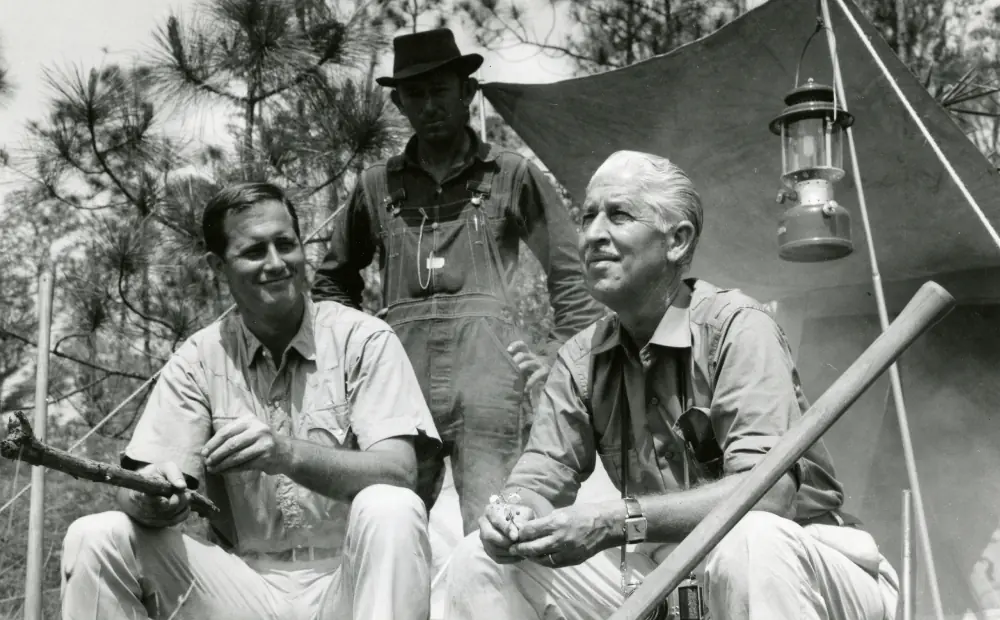It is National Wildlife Week. We're lucky to be here talking about the Florida panther.
Whether you call it a Florida panther or a cougar or a mountain lion, this is a cat that ranged all over America years ago.
Here in Florida, there are less than 300 left now. But thanks to the Endangered Species Act, they're protected and their numbers are doing much better.
Exactly and they're, you know, kind of this special kind of mountain lion, cougar, whatever you want to call it, like you said Peter, that only lives here in Florida today.
They used to range across the whole coastal south but because of habitat destruction and persecution by people, you know, they disappeared.
But again, the good news is because of laws like the Endangered Species Act, because of the work of groups like the Florida Wildlife Federation right here in Florida, they're coming back, right? And so we are actually standing in the middle of perfect prime Florida panther habitat.
This is absolutely perfect prime Florida panther habitat. They're deer, they're raccoons, they're muskets, they're skunks; all the things that they like to pray on. There are people living not that far away but there are elusive. Mountain lions don't like to be around people.
If you do happen to see one, and probably early in the morning or late at night, it tends to want to get away from you. Never run, face it, look big, make noise and they're going to walk away and leave you alone.
That's right. Now if you do have pets or livestock, it's important if you live in Florida panther territory, you want to bring them in at night. That's just going to keep them safe from, you know, the small possibility of predation and that's a good way that we can all kind of live in harmony with wildlife.
Which really is what National Wildlife Week is all about. So I hope that everybody takes the pledge right here on our website.












